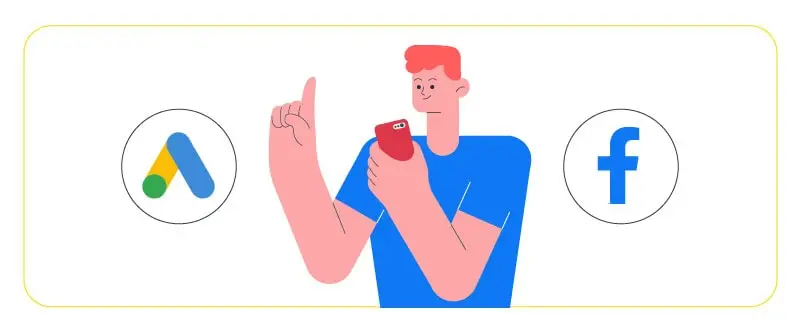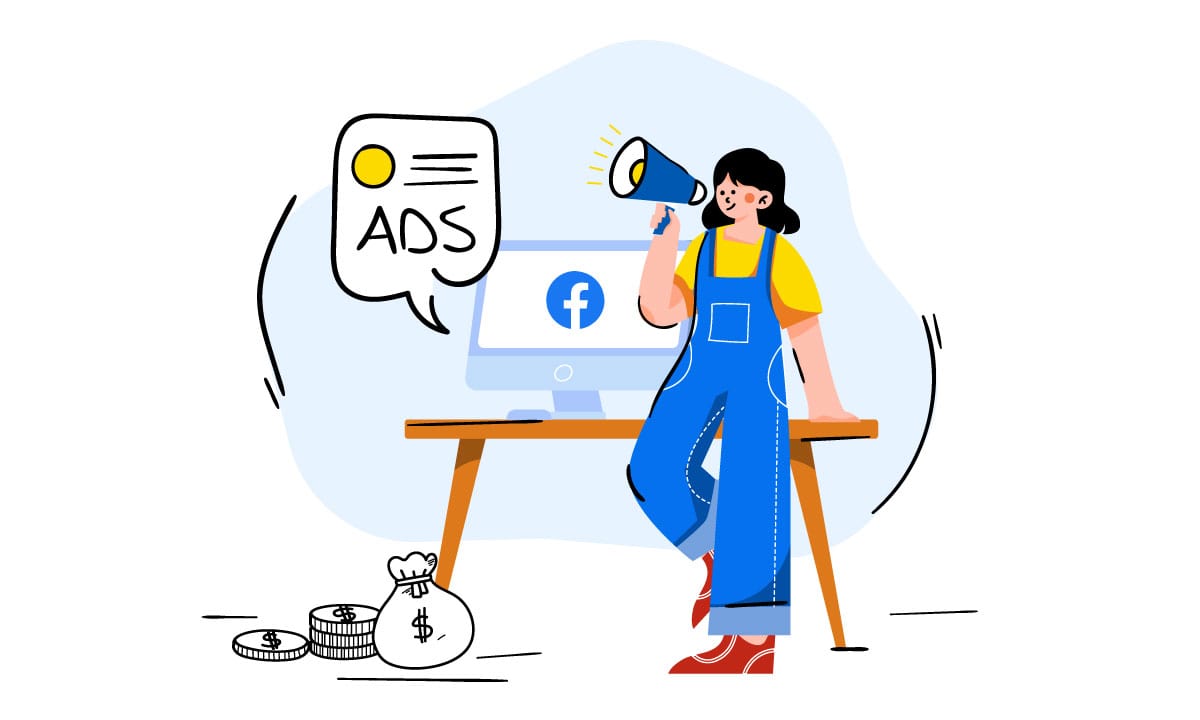In today’s highly competitive e-commerce market, online advertising has become a vital component of any successful digital marketing strategy. With the proliferation of social media and search engines, there are now several platforms available for businesses to advertise their products and services. Among the most popular and effective are Google Ads and Facebook Ads. In this article, we will compare these two advertising giants, highlighting their respective strengths and weaknesses, and offering insights into when it might be better to use one platform over the other.

The primary purpose of this article is to help e-commerce businesses understand the key differences between Google Ads and Facebook Ads, so they can make informed decisions about which platform to use for their online advertising campaigns. We will discuss the unique features, benefits, and challenges of both Google Ads and Facebook Ads, and provide practical tips and recommendations to help businesses get the most out of their advertising spend.
Understanding Google Ads for e-commerce advertising
Google Ads is an online advertising platform created by Google, which allows businesses to display their ads on the search engine results page and across the Google Display Network, Google’s online services like YouTube, and partner websites. With over 90% of all internet searches conducted on Google, this platform offers unparalleled reach for businesses looking to target potential customers. The platform can be highly effective for e-commerce businesses that are looking to find customers with high buyer intention. This is because Google’s search engine is the go-to destination for people looking to find information, products, and services online. When someone types in a search query related to a product that a business offers, they are already demonstrating a high level of interest.
One of the most significant benefits of using Google Ads for e-commerce businesses is its advanced targeting options. Google Ads allows advertisers to target specific keywords, locations, devices, demographics, and even past website visitors through retargeting campaigns. This level of targeting allows businesses to reach the right audience at the right time, increasing the chances of converting clicks into sales.
Another vital feature of Google Ads for e-commerce businesses is Google Shopping Ads, a subset of Google Ads that allows businesses to showcase their products directly in Google search results. These ads display product images, prices, and descriptions, making it easier for potential customers to find and compare the products they’re looking for. Google Shopping Ads have been shown to have a higher conversion rate than traditional search ads, making them an essential tool for e-commerce businesses looking to increase their sales.

Furthermore, Google Ads provides businesses with access to valuable data and insights, such as the search terms that people are using to find their products and the keywords that are driving the most traffic and sales. With this information, businesses can refine their advertising strategies to focus on the keywords and search terms that are most likely to lead to sales.
While Google Ads offers many advantages for e-commerce businesses, there are also some challenges and limitations to be aware of. One of the most significant challenges of using Google Ads is the high level of competition, which can drive up the cost per click (CPC) of your ads. This means that it can be challenging for small businesses with limited advertising budgets to compete with larger, more established businesses.
Despite these challenges, Google Ads remains an essential tool for e-commerce businesses looking to increase their online presence and drive sales. By using advanced targeting options and tools like Google Shopping Ads, businesses can reach the right audience at the right time, increasing their chances of converting clicks into sales.
An overview of Facebook Ads for e-commerce
Facebook Ads is a social media advertising platform that allows businesses to display their ads to Facebook and Instagram users and across Facebook Audience Network. With over 2.8 billion monthly active users on Facebook alone, this platform provides a massive audience for e-commerce businesses to tap into.
One of the key benefits of Facebook Ads for e-commerce businesses is its precise targeting capabilities. Facebook Ads allows advertisers to target users based on a wide range of factors, including demographics, interests, behaviors, and even past purchase history. This level of targeting allows businesses to reach highly specific audiences, increasing the chances of converting clicks into sales.
Facebook also offers a range of e-commerce-specific features, such as Facebook Advantage+ Ads (formerly Dynamic Product Ads) and Collection Ads. Facebook Advantage+ Ads allow e-commerce businesses to showcase their products to people who have already shown an interest in them, such as by visiting the business’s website or adding products to their shopping cart. This level of retargeting can be highly effective in converting interested users into paying customers.

Collection Ads, on the other hand, allow businesses to showcase a range of products in a visually appealing format. This ad format includes a cover image or video, along with several product images underneath. Users can click on individual product images to learn more about the products and make a purchase, all without leaving Facebook’s platform.
While Facebook Ads offers many advantages for e-commerce businesses, there are also some challenges and limitations to be aware of. One of the most significant challenges is ad fatigue, where users become less responsive to ads over time due to repeated exposure. To combat this, e-commerce businesses need to create fresh and engaging ads that stand out from the crowd.
In conclusion, Facebook Ads can be a highly effective tool for e-commerce businesses looking to reach a large and highly specific audience. With features like Facebook Advantage+ Ads and Collection Ads, businesses can target interested users and showcase their products in visually appealing ways. However, to be successful with Facebook Ads, e-commerce businesses need to create engaging and fresh ads that stand out from the competition.
Facebook Ads vs Google Ads for e-commerce: Which one to pick?
When it comes to advertising for e-commerce businesses, both Google Ads and Facebook Ads have their strengths and weaknesses. Let’s take a closer look at how these two advertising platforms compare.
Targeting Options: Both Google Ads and Facebook Ads offer a range of targeting options, but they focus on different aspects. Google Ads targets users based on what they are actively searching for, while Facebook Ads targets users based on their interests and behaviors. Depending on the business’s target audience, one platform might be more effective than the other. For example, Google Ads might be more effective for targeting users who are actively searching for a specific product, while Facebook Ads might be more effective for targeting users who are interested in a specific lifestyle or hobby.
Ad Formats: Google Ads offers a range of ad formats, including search ads, display ads, and shopping ads. Facebook Ads offers a range of ad formats as well, including image ads, video ads, and carousel ads. Both platforms have unique ad formats that can be effective for different purposes, but Facebook Ads’ visual formats can be more engaging and shareable.
Cost: Both Google Ads and Facebook Ads use a cost-per-click (CPC) bidding system, meaning businesses only pay when users click on their ads. The cost of each click can vary depending on the competition for specific keywords or interests. While Google Ads can be more expensive than Facebook Ads, it can also provide a higher return on investment (ROI) because it targets users who are actively searching for products.

Reach: Google Ads has a massive reach, with over 3.5 billion searches per day, while Facebook Ads reaches over 2.8 billion monthly active users. Depending on the business’s target audience, one platform might have a more extensive reach than the other.
One of the biggest advantages of using both Google Ads and Facebook Ads together is that they complement each other’s strengths and weaknesses. For example, a business might use Google Ads to target users who are actively searching for a specific product, and Facebook Ads to retarget users who have already shown an interest in their products. By using both platforms, businesses can create a comprehensive advertising strategy that maximizes their reach and potential for sales.
In conclusion, both Google Ads and Facebook Ads offer unique benefits for e-commerce businesses looking to advertise online. While they have different strengths and weaknesses, businesses can use both platforms together to create a comprehensive advertising strategy that maximizes their potential for sales. By analyzing their target audience and goals, e-commerce businesses can choose the platform(s) that best suit their needs and take advantage of the unique benefits of each.
Conclusion
The debate between Facebook Ads and Google Ads is ongoing, but there’s no universal answer when it comes to advertising a business. Each platform offers distinct advantages and can be effective in different scenarios. E-commerce businesses should evaluate their target audience and goals to determine which platform aligns best with their needs. Leveraging the strengths of both platforms together can create a well-rounded advertising strategy, maximizing opportunities for sales and success.
FAQs
What is Google Ads?
Google Ads is an advertising platform that allows businesses to display ads on Google’s search engine results pages, as well as other websites and platforms within the Google network.
What is Facebook Advantage+ ads (formerly Dynamic Product Ads)?
Facebook Advantage+ ads is an ad format that allows businesses to show personalized product ads to users based on their previous interactions with the business’s website or mobile app.
Which platform is better for e-commerce advertising, Google Ads or Facebook Ads?
There is no one-size-fits-all answer to this question. Both Google Ads and Facebook Ads have unique benefits and can be effective in different ways. It’s important for e-commerce businesses to analyze their target audience and goals to determine which platform(s) will best suit their needs.
Can e-commerce businesses use both Google Ads and Facebook Ads together?
Yes, e-commerce businesses can use both platforms together to create a comprehensive advertising strategy that maximizes their potential for sales and success. By using both platforms, businesses can take advantage of each platform’s unique benefits and reach a wider audience.







 Facebook Ads Spy Tool
Facebook Ads Spy Tool TikTok Ads Spy Tool
TikTok Ads Spy Tool